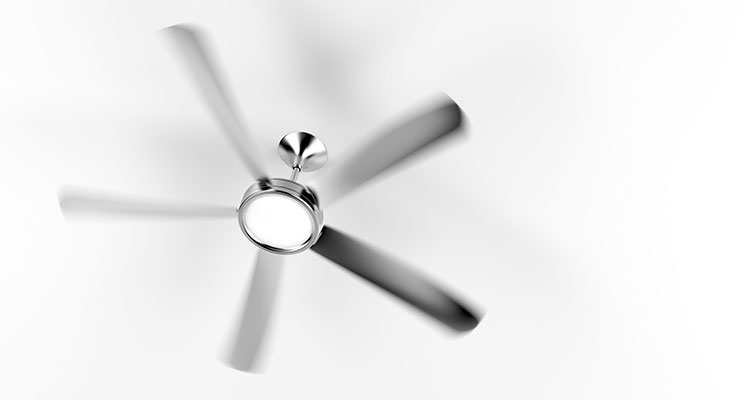How ceiling fans can make your eyes miserable

You’re probably one of the thousands of households that runs a ceiling fan in their bedroom while sleeping, especially during the summer months. While this cool breeze may help you sleep a little better at night, it can cause chronic irritation to the eyes called “exposure keratitis”.
Exposure Keratitis
Simply put, exposure keratitis occurs when the eyes become irritated from not being able to close the lids normally. The most common scenario is during sleep. We would like to think that our eyes stay completely closed while asleep, but many times, the eyelids are slightly opened during sleep. This by itself can cause dryness, redness, and irritation upon awakening, but it is made much worse by the wind created from a ceiling fan over your bed.
What can I do about it?
The easiest answer is to turn off the ceiling fan (although your spouse may have something to say about that!). A few more easy options are using a sleep mask to help keep your lids closed while blocking any moving air from reaching your eyes. In severe cases, hypoallergenic tape is another good option to forcefully keep the eyelids closed while sleeping. Many people also find that using lubrication drops just before going to sleep helps.